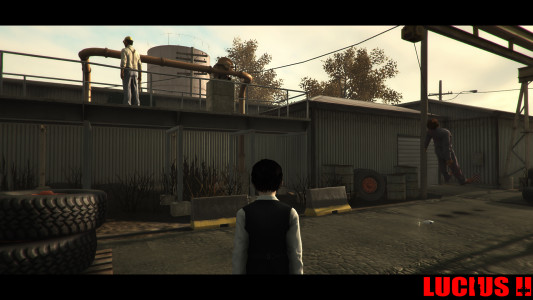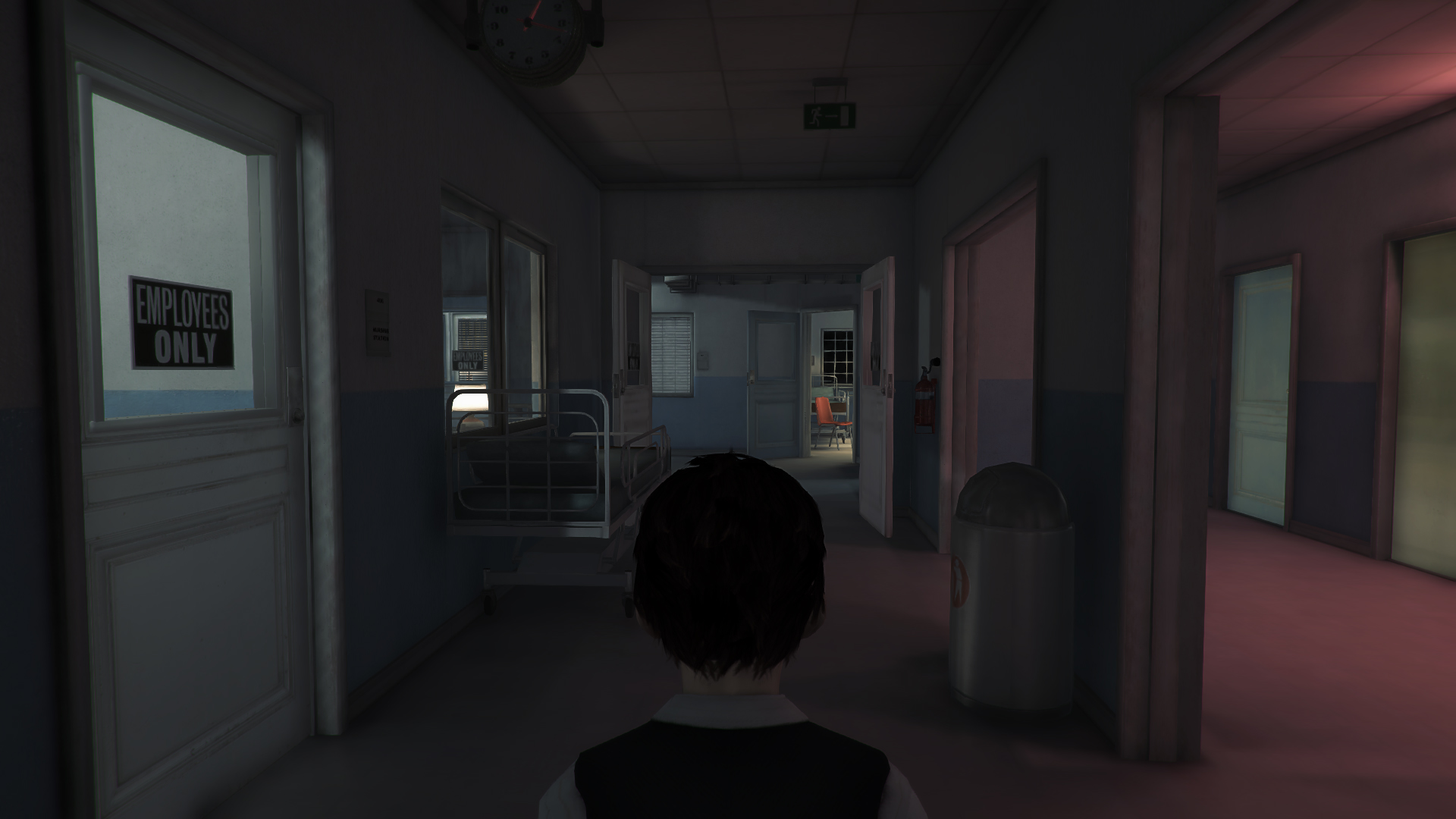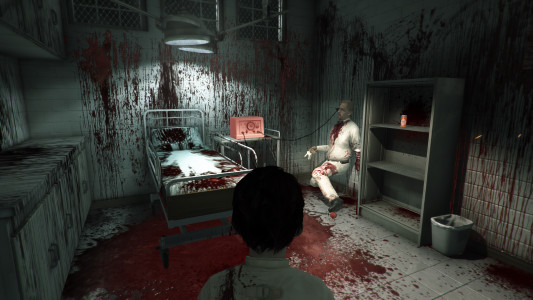Back in October I covered a game called Hatred. This title, developed by indie studio Destructive Creations, puts you in control of a psychotic mass murderer. The sole objective of the game is to cause as much havoc as possible, killing as many innocent people as you can. The games divisive and explicit content caused a storm of controversy in the gaming world. Even though many clamored for the title to hit Steam, it was removed and replaced various times. Many felt that this was a simple simulation, while others feared it would be much more than that.
Hatred looked like something out of a Law and Order episode, a grand dramatization of games such as the ever popular Grand Theft Auto series. But recently, another incredibly violent game has touched down in the Steam marketplace, Lucius 2.
In Lucius 2, you play the young son of Satan. After burning down your family home, and framing your step father for most of your previous murders, Lucius is admitted to a psych ward. The opening moments of this game are enough to make the squeamish step away from their PC, as a poor medical attendant sits in a chair with a shock treatment probe lodged in his eye socket, and the torso of his coworker hangs from a vent in the ceiling. Blood spatter coats the walls of the eerily lit room, and in order to leave the FIRST room, you must shock the attendant once more so his rigid, dead hands will release the key.
As you continue your quest, you must devise increasingly sadistic ways to eliminate those who stand in the way of your dark mission to bring about the apocalypse. From poisoning food, to breaking open gas lines and dousing innocents in flames, the list goes on and on. As I sat here playing, I felt well.. Like a bit of a jerk muttering things like “Yes!” after leveling up by cutting the life support of an old man in a hospital bed for quick XP. I constantly distracted myself from the game by thinking, “how is this any different from Hatred?”, a game I am vehemently against.
My first rationalization was that, well this is strategy, something akin to Dishonored. You are placed in a closed off level, given targets to impede your progress, and you must devise an efficient method of “removing” these obstacles. Hatred seems to revel in the begging of innocents, pleading for their lives. There is no strategy, only blind violence without sufficient story or reasoning behind it. But this begs the question, one that rings true in gaming and the real world, “Is violence okay if we come up with a good enough reason for it?”

My next rationalization was “Well this is not violence that can be imitated or recreated”. Lucius uses telekinesis to manipulate objects around him. But even though that is the case, many of the acts portrayed in the game can be imitated.
I am not against violence in all games however, nothing gets the adrenaline pumping like a good shooter. But I think a very pertinent question gamers and developers must ask themselves, is not if something is moral, or responsible, but “What parts of humanity does this game draw upon, and is that part of our humanity worth tapping into?”.
This game is a guilty pleasure in a very literal sense of the phrase. I liked trying to fool AI, seeing what tricks I could pull on them, leading to their demise. But once I reached my goal, after seeing an innocent gagging on pills, or being electrocuted to death, I instantly thought “man that is f*cked up”.
My main issue with titles like this, like Hatred, is that it perfectly portrays what conservatives view ALL games as. This is the ammunition they need to censor games, and criticize the medium as a whole. I can already picture the headline some conservative Fox News personality would have with a burning banner reading “666” in the background, ready to skewer the gaming industry for pumping out a game with this content.
Having said all this, are we truly ready to explore even dark sadistic violence in games? Are we all over thinking this? When you compare violence in games, you are at times splitting hairs and the argument basically always boils down to deciding whether or not there is enough reason to commit these virtual atrocities. Perhaps it scares us because it mirrors our sentiment to real world violence. Is it okay if you can spin it well enough?



